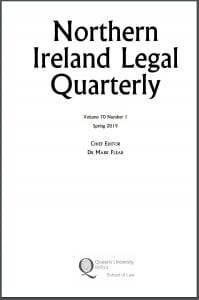By Prof Antonia Layard, Professor of Law (University of Bristol Law School)
 While land law often hits the front pages of the Daily Mail (“Homeowners back from vacation encounter a motormouth squatter”), two recent books have taken the UK broadsheets by storm. The first is Brett Christophers’s The New Enclosures: The Appropriation of Public Land in Neoliberal Britain, the second is Guy Shrubsole’s Who Owns England: How We Lost Our Green and Pleasant Land. Both books are concerned with transparency (and the niceties of land registration) as well as why ownership matters.
While land law often hits the front pages of the Daily Mail (“Homeowners back from vacation encounter a motormouth squatter”), two recent books have taken the UK broadsheets by storm. The first is Brett Christophers’s The New Enclosures: The Appropriation of Public Land in Neoliberal Britain, the second is Guy Shrubsole’s Who Owns England: How We Lost Our Green and Pleasant Land. Both books are concerned with transparency (and the niceties of land registration) as well as why ownership matters.
Building on years of work by Kevin Cahill, Doreen Massey, Andy Wightman, Anna Powell-Smith and James Meek – along with Domesday Book, the 1873 Return of Owners of Land and Lloyd George’s 1910 Valuation Office Survey – Shrubsole is able to build a picture of property dominance by a few, estimating that half of England is owned by less than 1% of the population (at least 30% of whom are aristocracy and gentry). According to Shrubsole, the state now owns 8% of England’s land mass, although it used to be much more. In fact, Christophers estimates that approximately two million hectares, or ten percent of the Britain landmass, have left the public sector for private ownership between 1979 and 2018.
So why does land ownership matter? As all law students learn, land ownership brings with it rights and privileges (as well as obligations, in respect of taxation and occupiers liability). Unless there are specific exceptions, the land is mapped as right to roam access land, for instance, or as a highway, the landowner can ask any person to leave: refusal converts entry into a trespass. As owners, landlords can charge market rents to let out their houses, developers can – subject to planning – transform former libraries and convert them into flats. Land ownership brings prestige, power and the potential for profit. (more…)

